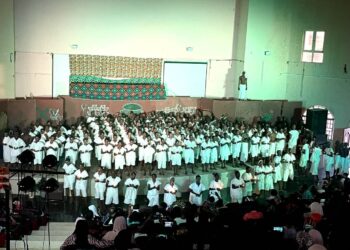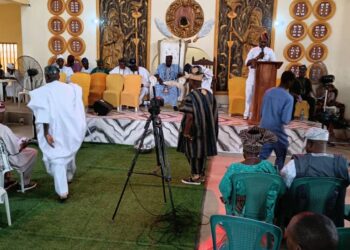Federal Polytechnic Ayede has extended heartfelt congratulations to the Honourable Minister of Education, Dr. Tunji Alausa, on his conferment with the prestigious national honour of Commander of the Order of the Niger (CON). The award was bestowed by President Bola Ahmed Tinubu during his June 12 address to a joint session of the National Assembly in Abuja.
Chairman of the Governing Council, Hon. Yakubu Dati (FNIPR), praised Dr. Alausa’s remarkable contributions to the education sector, noting his unwavering dedication and visionary leadership.

“Dr. Alausa’s relentless commitment to transforming Nigeria’s educational landscape is deeply commendable,” Hon. Dati remarked. “His bold advocacy for practical-oriented degree programmes exemplifies the foresight and courage needed to address pressing challenges in the system. This honour is a well-deserved recognition of his tireless efforts.”
In a statement issued by the institution’s Acting Director of the Centre for Information, Communication and Public Relations, Mr. Sunday Adepoju, the Rector, Engr. Dr. Taofeek Adekunle Abdul-Hameed (FNSE), echoed the Governing Council’s sentiments.
“We are elated to witness Dr. Alausa honoured at such a distinguished level,” the Rector stated. “His impactful service as a former official in the Health Ministry, combined with his reform-driven approach as Minister of Education, has laid a strong foundation for a brighter, more responsive educational system. His policies demonstrate a clear understanding of the urgent need to align academic programmes with the evolving demands of the labour market.”
Dr. Alausa’s illustrious career includes recognition as one of America’s Best Physicians on two occasions and board certification in Nephrology. His ability to navigate complex policy environments has been instrumental in addressing key issues—from curbing the brain drain phenomenon (‘Japa’ syndrome) among medical graduates to championing more skills-based degree programmes.
As the Federal Polytechnic Ayede community joins voices with stakeholders nationwide in celebrating this honour, the institution reaffirms its commitment to excellence, innovation, and transformative progress in Nigerian education.
You can get every of our news as soon as they drop on WhatsApp ...To get all news updates, Join our WhatsApp Group (Click Here)












